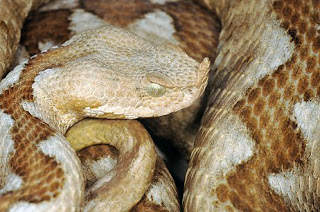The ruins of Troy – Çannakale
The ruins of Troy (referred to by one writer as the ruins of ruins) are not going to be the most impressive archaeological site you will have the opportunity to see in your time in Turkey. However they will be one of the oldest, and their immortalisation by Homer accounts for a lot of interest.
The site is actually much more than just the ruins of Troy (Truia, Truva) in the location are the archaeological remains of 9 cities all layered one on top of the other, this in itself makes it all but impossible to get a proper feeling about how any of these cities would have looked because all the ruins are intermingled with each other. The first excavation of Troy in 1870 was carried out by a German called H. Schlieman, sadly his obsession with discovering the Troy of Homer’s Iliad and the treasures of King Priam were to prove destructive and much of the archaeological evidence on the upper layers was destroyed, lost and looted. However up until this point the Homeric Troy was largely considered to be legend so Schlieman’s excavation did have the benefit of bringing to the limelight historical evidence for one of the world’s oldest civilisations. The various different cities on the Troy site existed between 3000 BC and 1 BC, Homer’s Troy is said to be Troy VII (1300–1190 BC) and bears evidence of being destroyed by war. In 1998 the archaeological site of Troy was added to the UNESCO World Heritage list.
The various different cities on the Troy site existed between 3000 BC and 1 BC, Homer’s Troy is said to be Troy VII (1300–1190 BC) and bears evidence of being destroyed by war. In 1998 the archaeological site of Troy was added to the UNESCO World Heritage list.
Facilities: At Troy you will also find a shop, museum, toilet facilities and a giant wooden horse that children enjoy climbing inside.
Getting there: The ruins are located near Çannakale the easiest way to get there is by car, bus or dolmuş if you are travelling south towards Izmir they are just of the main road on the right hand side. It is possible to get an arduous day trip from Istanbul but not recommended, you would be better off staying a night in Çannakale and spending some time exploring Gallipoli and Troy from there.
.

The site is actually much more than just the ruins of Troy (Truia, Truva) in the location are the archaeological remains of 9 cities all layered one on top of the other, this in itself makes it all but impossible to get a proper feeling about how any of these cities would have looked because all the ruins are intermingled with each other. The first excavation of Troy in 1870 was carried out by a German called H. Schlieman, sadly his obsession with discovering the Troy of Homer’s Iliad and the treasures of King Priam were to prove destructive and much of the archaeological evidence on the upper layers was destroyed, lost and looted. However up until this point the Homeric Troy was largely considered to be legend so Schlieman’s excavation did have the benefit of bringing to the limelight historical evidence for one of the world’s oldest civilisations.
 The various different cities on the Troy site existed between 3000 BC and 1 BC, Homer’s Troy is said to be Troy VII (1300–1190 BC) and bears evidence of being destroyed by war. In 1998 the archaeological site of Troy was added to the UNESCO World Heritage list.
The various different cities on the Troy site existed between 3000 BC and 1 BC, Homer’s Troy is said to be Troy VII (1300–1190 BC) and bears evidence of being destroyed by war. In 1998 the archaeological site of Troy was added to the UNESCO World Heritage list.Facilities: At Troy you will also find a shop, museum, toilet facilities and a giant wooden horse that children enjoy climbing inside.
Getting there: The ruins are located near Çannakale the easiest way to get there is by car, bus or dolmuş if you are travelling south towards Izmir they are just of the main road on the right hand side. It is possible to get an arduous day trip from Istanbul but not recommended, you would be better off staying a night in Çannakale and spending some time exploring Gallipoli and Troy from there.
.



Comments